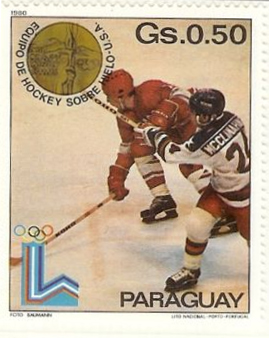1980: In a Time of World Conflict, College Freshmen’s Views on Reviving the Draft

Jimmy Carter was still president, mired in the ongoing Iranian hostage crisis and an aborted raid to resolve it that ended in catastrophe. (Carter was defeated in November 1980 by Ronald Reagan in a Republican landslide.) America led a boycott of the Summer Olympics held in Moscow — the first Olympics held in a Communist country — over the 1979 Soviet invasion of Afghanistan. Later in the Winter Olympics, the U.S. Olympic men’s hockey team pulled off the “Miracle on Ice” in Lake Placid, NY, beating the heavily favored USSR team for the gold medal. In New York City, John Lennon was murdered in front of his apartment building. And Ted Turner launched CNN to capitalize on the public’s appetite for news as the Iran-Iraq War began.
Given the Soviet invasion of Afghanistan and concerns about U.S. troop strength, President Carter reactivated the requirement that American men between 18 and 25 register for Selective Service, otherwise known as the draft. A companion recommendation to Congress was that Section 811 of the Department of Defense Authorization Act of 1980 be amended to “provide presidential authority to register, classify, and examine women for service in the Armed Forces” for the first time in history. Moreover, several men filed court challenges to the Selective Service Act because it excluded women.
How did students entering college in 1980—the majority of whom were of age to register for Selective Service—feel about this issue? Particularly since only 1.3% of respondents indicated future plans for military service as a voluntary career choice and thus a draft, if carried out, would potentially alter the majority of respondents’ self-reported career futures?
When asked to rate their agreement or disagreement with the statement “Women should be selected to the draft,” 56.3%, a slight majority, chose “agree somewhat” or “agree strongly.” Of those who chose “disagree somewhat” or “disagree strongly” (43.8%), 21.6% chose “disagree somewhat” and 22.2% chose “disagree strongly,” with only a 0.6 percentage point difference separating them.
When broken down by gender, more males (32.6%) than females (11.7%) strongly agreed that women should be selected for the draft; conversely, more females (31.6%) than males (12.2%) strongly disagreed that women should be selected for the draft. Political views, surprisingly, were less monolithic on the subject. Of those students who identified as far right politically, 53.1% agreed somewhat or strongly that women should be selected for the draft. Among students who identified as far left politically, 56% agreed somewhat or strongly that women should be selected for the draft.
However, gender differences appeared within political categories. For instance, 25.8% of male students identifying as far right politically disagreed strongly that women should be selected for the draft, compared to 47.7% of female students identifying as far right politically. Of those identifying as far left politically, 17.8% of male students disagreed strongly that women should be selected for the draft versus 43.4% of female students.
Nuances also appeared when analyzing responses in light of other questions about students’ views on social roles for women. For instance, of those who disagreed strongly with the view that women should be selected for the draft, only 2.2% also disagreed strongly with the view that “women should receive the same salary and opportunities for advancement as men in comparable positions.” By contrast, 76.3% of those who disagreed strongly that women should be selected for the draft agreed strongly that “women should receive the same salary and opportunities for advancement as men in comparable positions.”
As can be seen by the partial data presented, the issue of women and the draft was complex for 1980’s first-year students, set against a backdrop of the beginnings of the 1980s phase of the Cold War between the U.S. and Russia and world turbulence elsewhere.
Did you know?: 72.8% of college entering freshmen in 1980 agreed either strongly or somewhat that “faculty promotions should be based in part on student evaluations.”
